Manduca: white apical patch on forewing; two rows of white dots on abdomen, white on juncture of thorax and abdomen; three yellow-orange marks on each
side of abdomen

Manduca albiplaga:
Large white apical patch in upper half of postmedian area from outside of pm line to apex; another large white patch
from costa to inner margin just outside the basal area. Two white areas not contiuous as in rustica.
Jujuy, Misiones
|

Manduca leucospila ; FWl: 47mm:
Space along i.m. between aml & post-discal lines: pale, suffused with buff.
Large greyish-white patches anterior to oblique apical line, and in submarginal area.
Smaller white patch & submarginal zigzag line near anal angle. Black streak connects 3rd antemedian & 1st discal
lines between veins CuA1 and CuA2; discal lines sharply dentate, 2nd and 3rd close together, with the space between spotted with white,
the lines more evenly curved than in Manduca rustica; fringe with white spots large, extending onto the wing membrane.
Jujuy, Salta, Tucuman
|

Manduca rustica
Broad, dominant U-shaped whitish area from costa (just outside am line) to inner margin; along inner margin
to last pm line and inside that line to first pm line to costa. Median area bounded by this shape is grey-brown with white cell and no
white triangle joining cell to costa. Lower inside 1/4 of basal area white with white marks above. Much white in terminal area.
Note inverted white v's, like eyebrows, over dark triangles on mid thorax. Strong white presence at juncture of thorax/abdomen.
Buenos Aires, Cordoba, Corrientes, Chaco,
Entre Rios, Formosa, Jujuy, Misiones, Salta, Santiago del Estero, Tucuman
|
Manduca: Conspicuous, dark band from about midpoint costa to outer margin near vein CuA1, housing white discal spot.
|
|

Manduca lefeburii :-->
|
Conspicuous, diffuse, dark band from midpoint costa to outer margin near vein CuA1, housing white discal spot.
Mostly pale grey with pale brown triangular patch from cell spot to costa.
Aml weak, outer pm line weak. No narrow black mesial line on abdomen upperside.
Misiones
|
|
Manduca: Slaty grey area between inner and outer pm lines; upper half of outer pm line straight to slightly concave;
inner pm line obtusely angled near its midpoint; subterminal line black, thick near anal angle; five or six
large yellow-orange marks on each side of abdomen. Forewing fringe: black and white sections of almost equal length; in sexta subspecies,
white is greatly diminished. Location in Argentina can also help with determinations.
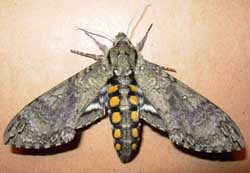
Manduca diffissa diffissa
"Manduca diffissa diffissa is a small grey subspecies from SE Argentina and Uruguay. It might be a separate/distinct species?
Rothschild & Jordan listed M. d. diffissa from Paraguay but I suspect these would be better placed as M. d. petuniae
(though I have not checked closely)" (IK). Buenos Aires.
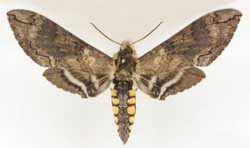
Manduca contracta
|

Manduca diffisa mesosa
"Manduca diffissa mesosa is a form from Salta and Tucuman in northern Argentina
(and probably southern Bolivia) that is
intermediate between tropicalis and petuniae(!)." (IK). It is also confirmed from Chaco, and probably
flies in northern Santiago del Estero.
Lower, outer am line does not turn outward near inner margin as in petuniae.
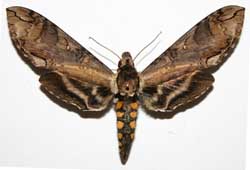
Manduca tucumana
|

Manduca diffisa petuniae
"Manduca diffissa petuniae is generally (but not always) a pale brown form from SE Brazil as far north as Minas Gerais
(and probably in the Iguazu, Misiones ??, Argentina area)" (IK).
I notice the lower, outer am line turns outward near inner margin, reducing the clear area between am and pm lines.

Manduca scutata
|
|
+++++++
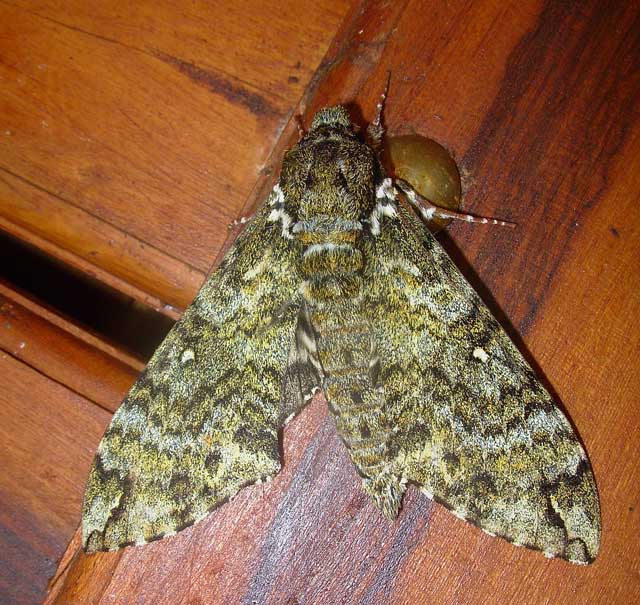
Manduca lichenea, Campo Ramon, Misiones, Argentina,
September 26, 2010, courtesy of Ezequiel Osvaldo Núñez Bustos
Use your browser "Back" button to return to the previous page.
This page is brought to you by
Bill Oehlke and the
WLSS. Pages are on space rented from Bizland. If you would like
to become a "Patron of the Sphingidae Site", contact Bill.
Please send sightings/images to Bill. I will do my best to respond to
requests for identification help.
Visit Argentina Thumbnail Checklists:
Sphingini: Manduca
Sphingini: Agrius, Amphimoea, Cocytius, Euryglottis, Lintneria, Sphinx
Smerinthini: Adhemarius, Orecta and Protambulyx
Dilophonotini: Aleuron, Enyo, Pachygonidia and Unzela
Dilophonotini: Aellopos, Eupyrrhoglossum, Nyceryx and Perigonia
Dilophonotini: Callionima, Erinnyis, Hemeroplanes, Isognathus, Madoryx, Oryba, Pachylia, Pachylioides, Phryxus
and Pseudosphinx
Philampelini: Eumorpha
Macroglossini: Hyles and Xylophanes
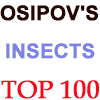 | 
Show appreciation for this site by clicking on flashing butterfly to the left.
The link will take you to a page with links to many insect sites. |
|



